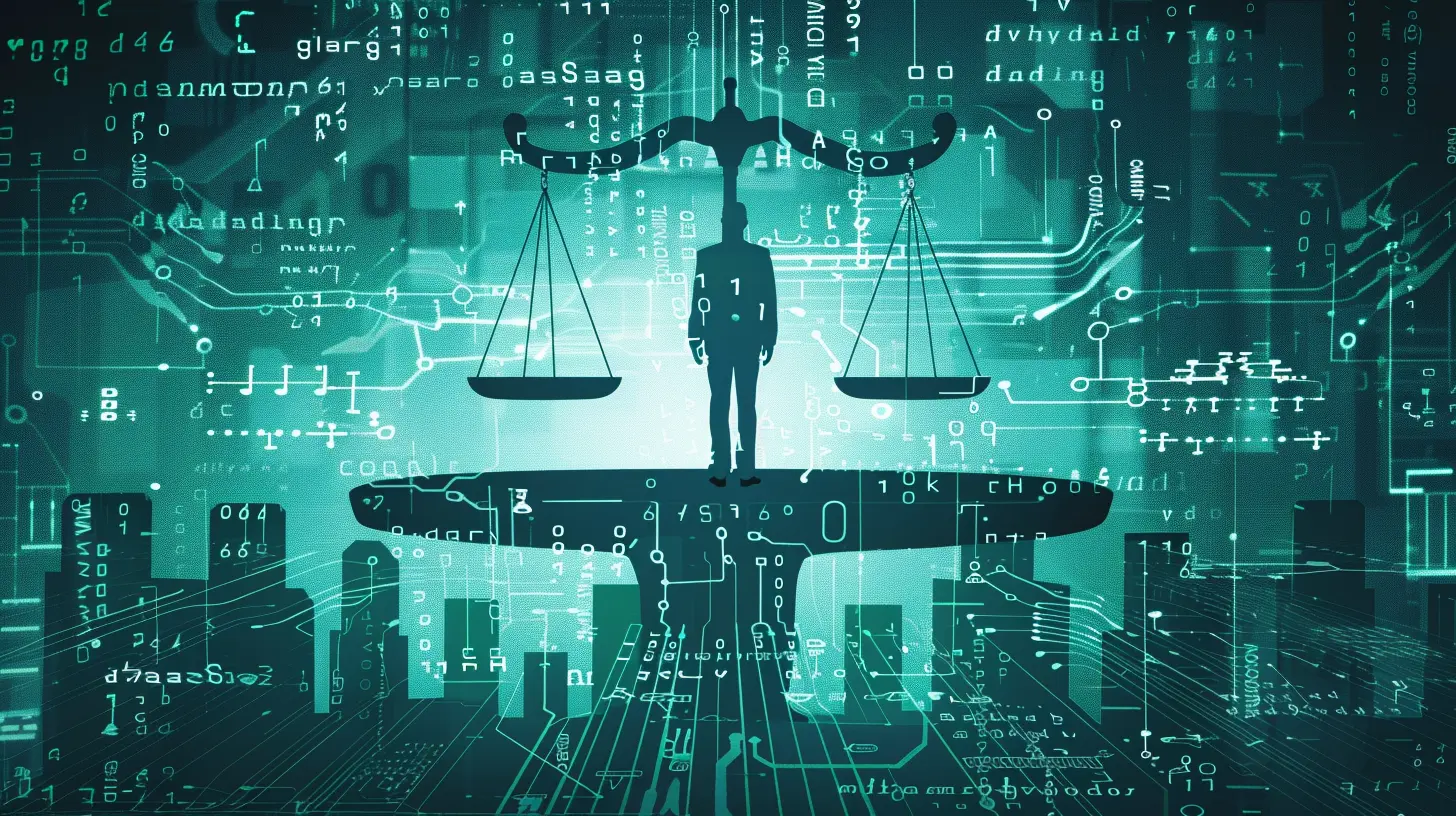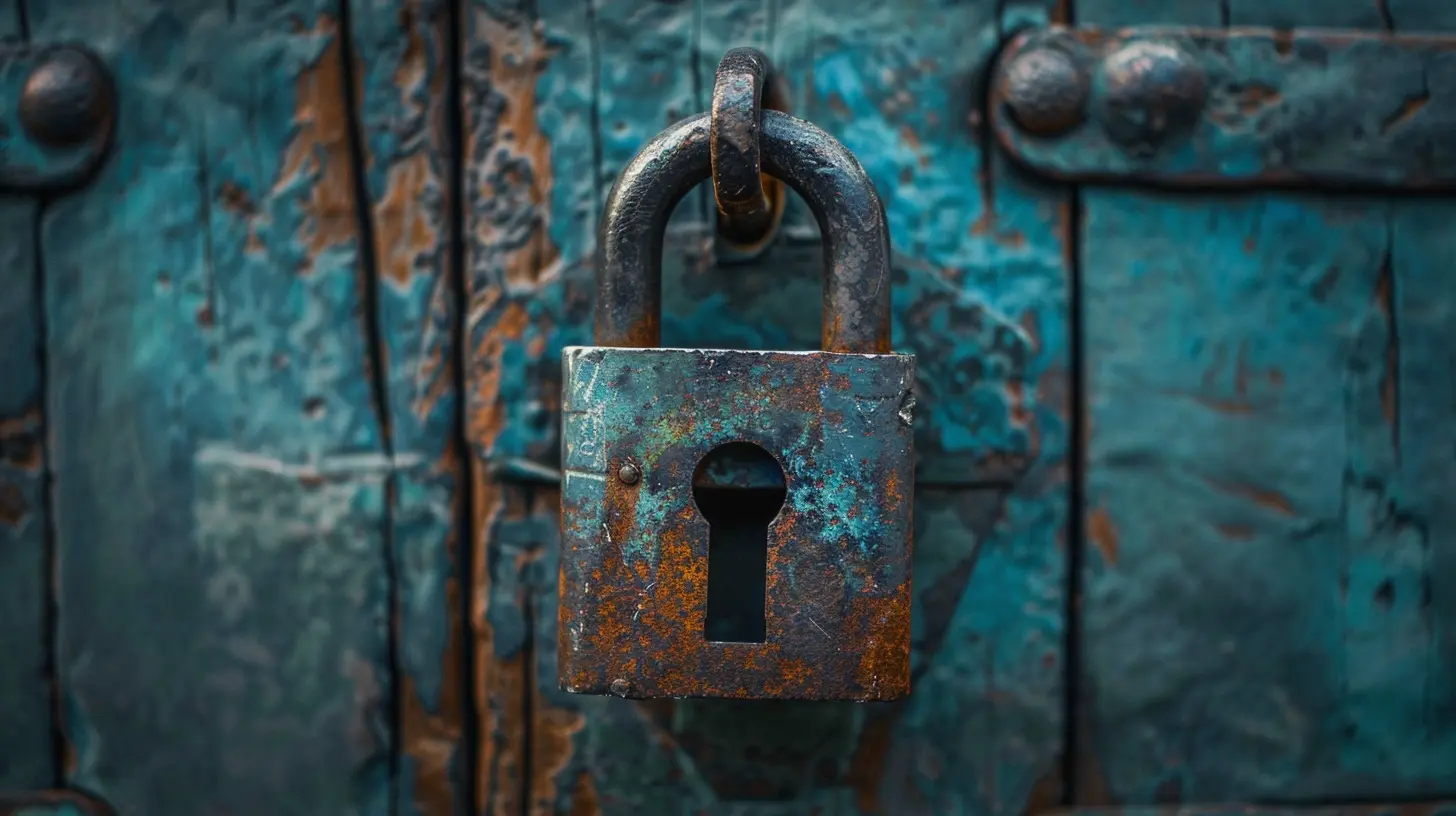The Ethics of Cybersecurity: Striking a Balance Between Privacy and Protection
10 July 2025
Let’s be real—our digital world is a bit of a double-edged sword. On one hand, it connects us, makes life easier, and transforms how we work, shop, and socialize. But on the flip side? It opens up a Pandora’s box of ethical debates, especially when it comes to cybersecurity. If you've ever wondered whether guarding systems and data might sometimes infringe on personal freedoms, you're not alone.
In this post, we’re going to dive into the gritty ethical dilemma that sits right at the intersection of privacy and protection. It’s not just about choosing sides—it's about understanding where the line is... and when it gets blurry.
What Is Cybersecurity Ethics, Anyway?
Before we get too deep, let’s define what we’re really talking about here.Cybersecurity ethics involve the moral principles and frameworks that guide the behavior of individuals and organizations when it comes to protecting digital data. Think of it as the compass that helps us decide what’s right or wrong in an online security context.
But here's the twist: technology moves fast, and laws often lag behind. So figuring out what’s “ethical” isn’t always black and white. Is it ethical for governments to spy to prevent crimes? Should big tech companies keep massive logs of our browsing habits—even if it’s to keep us safe? That’s where things get complicated.
The Privacy vs. Protection Tug-of-War
This is the central issue in cybersecurity ethics. Privacy is about keeping your personal stuff to yourself—your messages, emails, location... even your embarrassing late-night Google searches. Protection, on the other hand, is about shielding you and society from harm—hackers, cyber-terrorism, identity theft, the works.Now, here’s the kicker: the more secure a system becomes, the more data often needs to be collected and analyzed. That could include your personal data. So while you’re being protected, your privacy might be taking a hit.
Real-Life Example: The Apple vs. FBI Case
Remember the huge legal battle between Apple and the FBI back in 2016? After a mass shooting in San Bernardino, the FBI wanted access to the attacker’s iPhone. But Apple refused to create a “backdoor” into iOS, arguing it would compromise the privacy of all users.The dilemma? Helping law enforcement might keep people safe, but it could also open the floodgates to government overreach. It was privacy vs. protection, playing out on a global stage.
Why Privacy Matters
Let’s face it: in today’s digital age, privacy is power.You wouldn’t leave your front door wide open for anyone to wander in, right? The same applies online. Just because we’re all connected doesn’t mean we should surrender control of our personal information.
Here are a few reasons why privacy is non-negotiable:
- Autonomy: Privacy gives us the freedom to think, speak, and act without fear of judgment or surveillance. It’s the foundation of free societies.
- Security: Without privacy, sensitive information (like your banking or health data) could fall into the wrong hands.
- Identity Protection: When your personal info is exposed, it can be exploited for fraud, theft, or worse.
But here’s the thing: protecting that privacy is a massive challenge, especially when cybersecurity measures ask us to trade it for a sense of safety.
Why Protection Is Equally Critical
Alright, flip the coin.Protection has its own ethical weight. Cyber threats are no joke. From ransomware attacks taking down hospitals to state-sponsored hacking campaigns undermining national elections—cybersecurity isn't some optional luxury. It’s essential.
Let’s break down why it’s just as important as privacy:
- Public Safety: A compromised electrical grid or water treatment facility affects everyone. These aren’t hypothetical threats—they’re very real.
- Data Integrity: Imagine your medical records being tampered with. A small alteration could result in a deadly prescription.
- National Security: Governments have a responsibility to defend citizens from digital threats just as they do physical ones.
So yeah, protection isn’t the enemy of privacy—it’s just trying to play in the same sandbox.
The Gray Areas: Ethical Dilemmas in Cybersecurity
Now things get messy.The problem isn’t choosing between privacy and protection—it’s finding the sweet spot where both can coexist. Unfortunately, every situation is different. Here are a few complex cases where ethics aren’t so clear-cut.
1. Surveillance vs. Consent
Mass surveillance is often justified as a tool for crime prevention. But is it okay to watch everyone all the time, just to catch a few bad actors?Think about CCTV in public spaces, internet monitoring, and facial recognition tech. You might feel safer, but at what cost?
2. Data Collection vs. Informed Use
Companies collect tons of data for "user experience improvements." But do users even know what they’re agreeing to when they click “I accept”?That 5,000-word terms-of-service doc no one reads? It might mean your personal data is being sold to third parties.
3. Ethical Hacking vs. Criminal Activity
“White hat” hackers break into systems to find vulnerabilities and help patch them. Sounds good, right?But who decides what's ethical hacking and what’s criminal intrusion? The legality often depends on intent—but intent can be tough to prove.
Striking the Right Balance: Can We Have Both?
Let’s be honest—there’s no perfect formula for balancing privacy and protection. But here are some ways we can strive toward it:1. Transparency Is Key
Organizations should be crystal clear about what data they collect, why they need it, and how they protect it. No vague policies or hidden clauses. Just honest communication.If users feel informed, they’re more likely to trust the system.
2. Stronger Regulations
Governments need to step up their game. Laws like the GDPR in Europe are a good start, giving people more control over their personal data. More regions should follow suit.Also, companies should be held accountable if they mishandle data or overstep ethical boundaries.
3. User Empowerment
Let's put more power in users' hands. Let them opt-in instead of opt-out. Give them meaningful choices about the data they share.And teach basic cybersecurity hygiene! When people understand the risks, they make smarter choices.
4. Ethical Frameworks for Developers
Tech isn’t neutral—it reflects the values of those who build it. That’s why developers need an ethical code of conduct. Before launching products, they should ask: Could this tech be abused? Are we respecting user rights?The Role of Artificial Intelligence in the Debate
Here’s where it gets really interesting.AI is becoming a massive part of cybersecurity—detecting breaches, predicting attacks, automating responses. But AI also thrives on data. Lots of it.
This raises major ethical red flags:
- What's the risk of bias in AI-driven surveillance?
- Is automated decision-making transparent and fair?
- Who’s accountable when an AI system makes a bad call?
AI can be a powerful force for good in cybersecurity, but only if it's developed and deployed responsibly.
Moving Forward: What You Can Do
You don’t need to be a coder or IT expert to take a stand in the privacy vs. protection conversation. Here’s how you can make a difference:- Stay Informed: Follow credible sources about cybersecurity and digital rights.
- Use Tools that Respect Privacy: Choose browsers, apps, and services that prioritize user privacy.
- Speak Up: Advocate for ethical tech practices in your workplace and government policies.
- Protect Yourself: Use strong passwords, enable two-factor authentication, and think twice before sharing sensitive info online.
Because in the end, balancing privacy and protection isn’t just a tech issue—it’s a human issue.
Final Thoughts
The ethics of cybersecurity aren't about choosing one side over the other. They’re about understanding that both privacy and protection have value, and that sacrificing too much of one can undermine the other.It’s like walking a tightrope—lean too far in either direction, and we risk a nasty fall. But if we stay aware, stay principled, and keep the conversation going, we just might stay upright.
Because digital ethics isn’t something that's done once—it’s a journey we’re all on together.
all images in this post were generated using AI tools
Category:
Cyber ThreatsAuthor:

John Peterson
Discussion
rate this article
2 comments
Vanya Conrad
A vital discussion: balancing privacy rights with essential cybersecurity measures is crucial.
November 11, 2025 at 5:05 AM

John Peterson
Thank you! Striking that balance is indeed essential for fostering trust while ensuring security.
Oren Cantu
Great article! It's crucial to navigate the delicate balance between privacy and security in today’s digital age. Thought-provoking insights that remind us how important ethical considerations are in cybersecurity. Keep it up!
July 13, 2025 at 3:01 AM

John Peterson
Thank you for your kind words! I’m glad you found the article thought-provoking. Balancing privacy and security is indeed crucial in today’s digital landscape.


